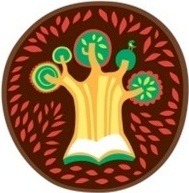![]() September 4, 2019 06:04
September 4, 2019 06:04
This study focused on different parameters attached to the drought resistance of Thuya inoculated by an indigenous endomycorrhizal fungus. The mycorrhizal and non-mycorrhizal Thuya plants were exhibited to two stages of water: the level of water stress and an irrigation normal level. The results showed that controlled mycorrhization significantly improves plant tolerance to water dryness. Our finding showed that the inoculation with endomycorrhizal fungi had a negative effect on the content of photosynthetic pigments. On the other hand, Arbuscular Mycorrhizal Fungi (AMF) inoculation had a positive impact on the soluble sugar content, which was higher in AMF plants (251.4 mg/g) than in non-AMF plants (222.53 mg/g). Furthermore, the build-up of proline was lower in mycorrhizal plants (89.95 mg/g) than in non-mycorrhizal plants (194.71 mg/g). Also, the total soluble protein content was higher in mycorrhizal plants (257.84 µg/g) than non-mycorrhizal plants (225.49 μg/g) under water stress. These data clearly show that inoculation with endomycorrhizal fungi has improved the drought tolerance of Tetraclinis articulata plants, which could be a very interesting solution to reduce the adverse effects caused by drought and subsequently determine the success of the programs regeneration in Thuya forests.
Please read full article : - www.ikprress.org
Posted September 4, 2019 06:04
